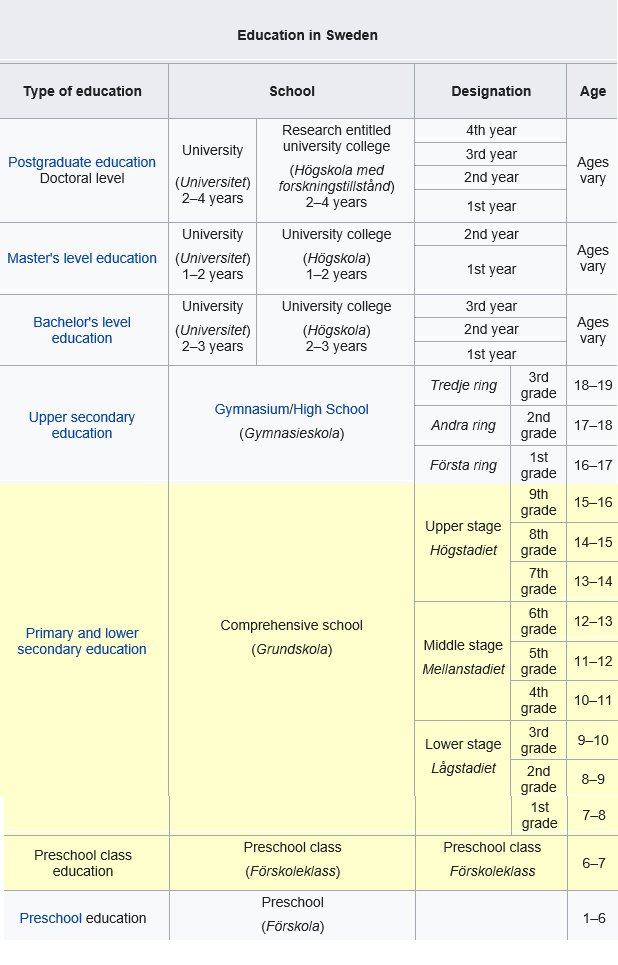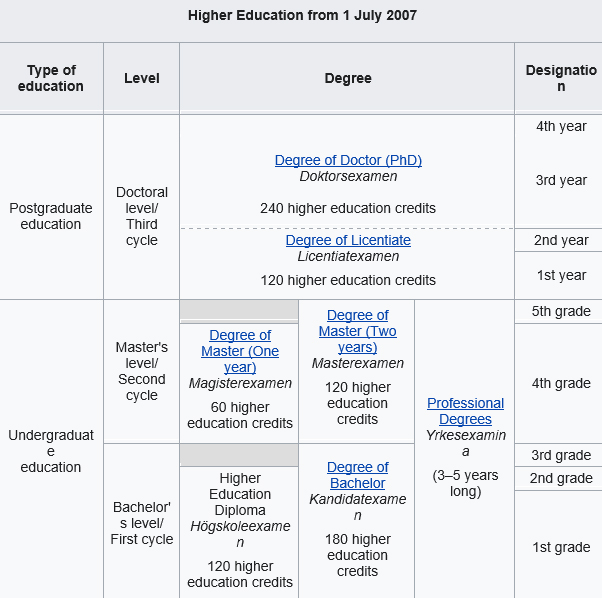
Education in Sweden is mandatory for children between ages 7 and 15. The school year in Sweden runs from mid/late August to early/mid-June. The Christmas holiday from mid-December to early January divides the Swedish school year into two terms.
Preschool is free for low-income families and subsidized with a price ceiling for all families. The year children turn six they start the compulsory preschool class (förskoleklass), which act as a transition phase between preschool and comprehensive schools. Children between ages 7 and 15 attend comprehensive school where a wide range of subjects are studied. All students study the same subjects, with exception for different language choices. The majority of schools are run municipally, but there are also privately owned schools, known as independent schools.
Almost all students continue studying in 3 yearlong upper secondary schools where most students choose one out of 18 national programmes some of which are vocational and some preparatory. For students not fulfilling the requirements for the national programmes, introductory programmes are available where students work to satisfy the requirements for the national programmes. In 2018, 16% of students finishing year 9 of comprehensive school were not eligible for national programmes.
The higher education system is compatible with the rest of Europe through the Bologna Process where degrees are divided into 3 cycles, basic level, advanced level and doctoral level. There are two degrees available in each cycle of different lengths. Universities have no tuition fees for Swedish citizens (as well for citizens of European Economic Area countries), and student aid is available from the government.

After upper secondary school, students can apply to university in order to receive tertiary education. General academic degrees are offered by public universities and university colleges that tend to attract students on a regional basis. Besides general academic degrees, the higher education system also provides a number of professional degrees at a bachelor’s or master’s level in fields such as engineering, law and medicine. Independently from the Bologna Process-compatible university system there is a system of higher vocational education where subject areas such as, Business Finance and Administration, IT, and Hospitality and Tourism are being taught.
Swedish degrees are incorporated in the Bologna Process, the European higher education framework. In this system degrees are divided into three cycles, corresponding to bachelor’s level, master’s level and doctoral level. In Sweden, there are two general qualifications for each cycle of different lengths and various professional degrees and various professional degrees at bachelor’s or master’s level.

Educonsult International has partnered with WESTERN EDUCATION PARTNERS, which cooperates with all the universities in Sweden – www.wep-acdemic.com
